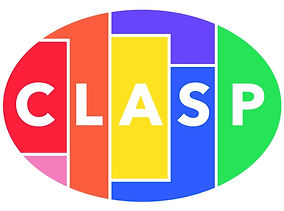top of page

CLASP stands for:
Caring, Listening And Supporting Partnership
Welcome to CLASP
We are a self-advocacy group for people with learning disabilities in the Wokingham borough. Self-advocacy is when you speak up for yourself about the things that are important to you. CLASP helps people with learning disabilities to do this. We support each other to speak up for our rights and live more independently.
What is self advocacy?
Advocacy is speaking up about something you think is important or want to change. An advocate is a person who speaks up for you or helps you speak up for yourself. Self-advocacy is when you speak up for yourself. Sometimes it’s difficult to make people listen so self-advocates often get together in groups to support each other and find a louder voice.
How is CLASP helping people to speak up for themselves?
As a user-led organisation – we are run by our members.
We employ people with learning disabilities and offer voluntary opportunities.
We support our members to have their say about how local services are developed.
We have a training group called Listen To Us – who deliver learning disability awareness training.
We run a campaigning group called Take Notice.
We work in partnership with other organisations to run projects.
We provide one to one support, information, advice and signposting.
Why is self-advocacy important?
It gives people the opportunity to:
-
Support each other.
-
Build their confidence.
-
Find out about their rights.
-
Shape local services.
-
Show people what they can achieve, rather than focusing on the things they can’t do.
-
Be empowered.
History of self-advocacy movement:
-
Closure of long stay hospitals began in the 1970s.
-
Care in the community introduced.
-
Self-advocacy groups gained power and influence in the 1990s.
-
White paper Valuing People published in 2001.
-
Set up by Wokingham Borough Council in 2001.
-
Set up as an independent charity in 2005.
What do our members say about our service?
“I loved that it was led by people with genuine experience. The personal aspect engaged me and I felt that I took on board what was said a lot more.”
“It has refreshed my way of thinking.”
“We as humans tend to compartmentalise people and make assumptions about what they can and can’t do – this training has reminded me not to put people in a box but to listen and learn from them.”
“It has helped me to get more involved in the community.”
“We give people a voice.”
“I get to see my friends and talk about stuff that counts.”
“I’m glad to be part of it. It makes me feel more independent.”
bottom of page
